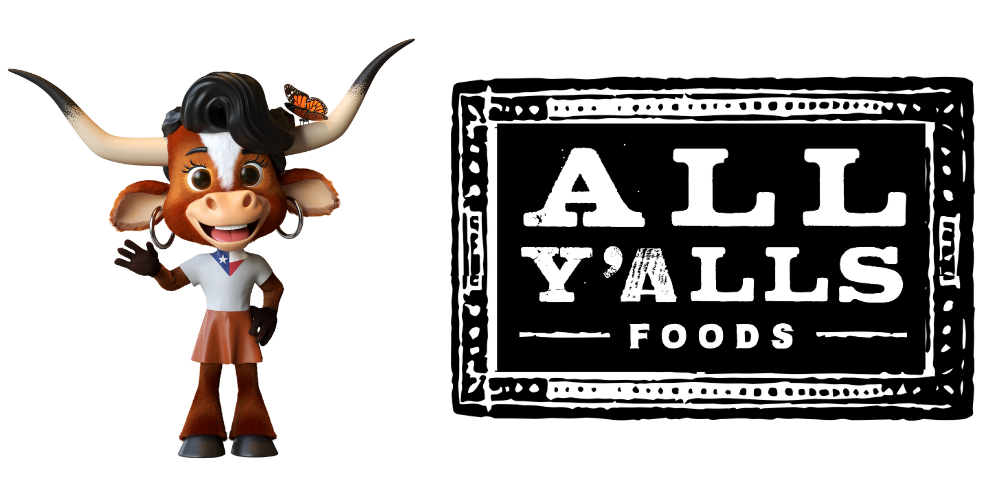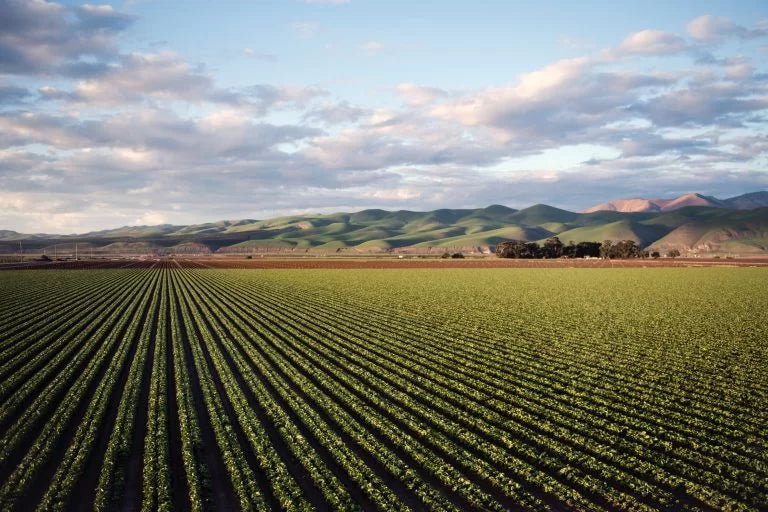
Why do we use certified non-GMO ingredients?
When you’re choosing food products at the grocery store, what makes you pick one over the other? While many countries require labeling of foods that contain GMOs, the United States did not until January 2022. The idea of ingesting genetically modified foods doesn’t sound very tempting, nor do we include them in our recipes. We prefer to keep things as nature intended them, using only certified non-GMO ingredients in all our plant-based snacks, which help preserve the ingredients’ quality, flavors, and nutrients.
What are GMOs?
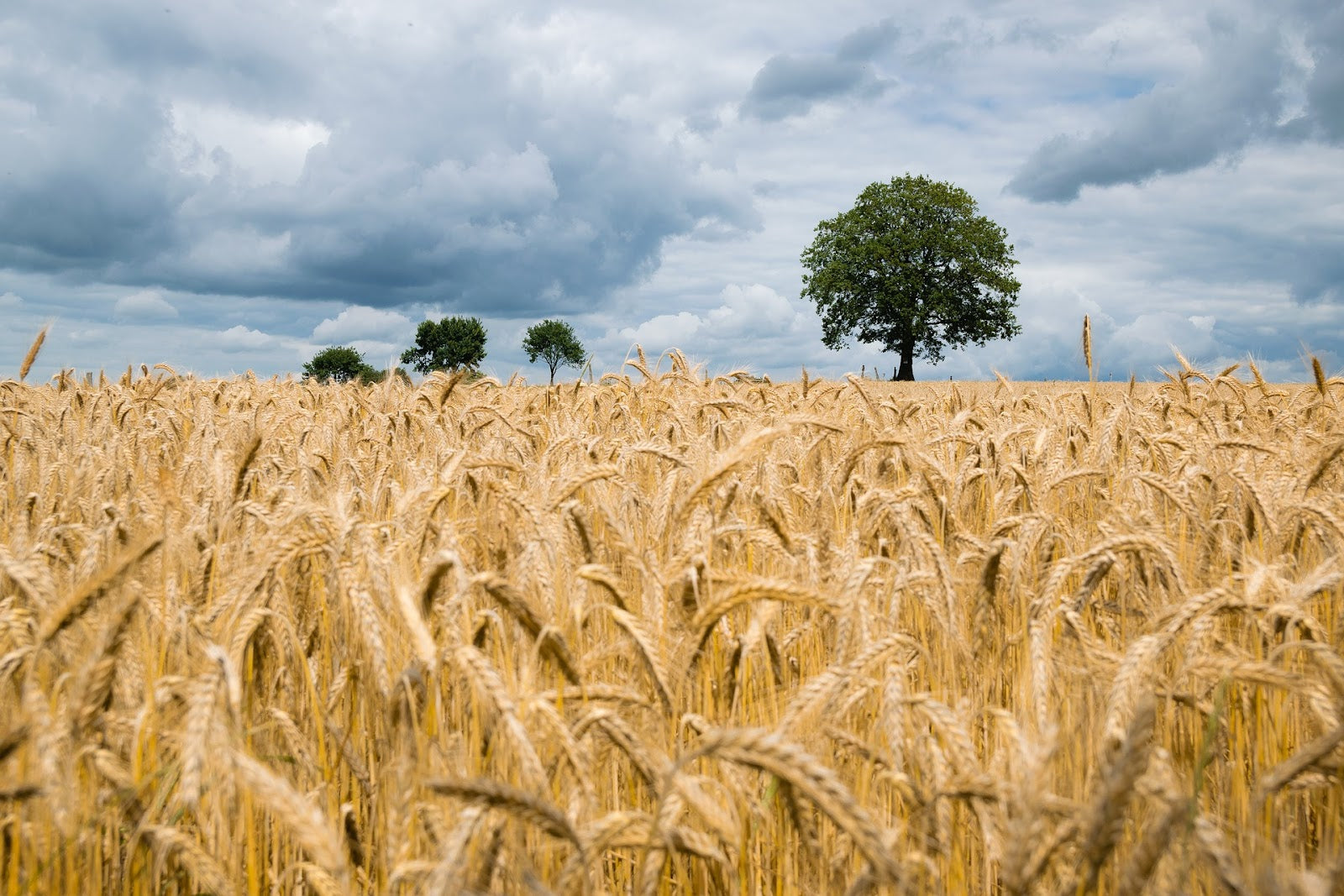
GMO stands for genetically modified organisms. These include any plants, animals, or organisms that have been genetically modified to include useful genetic variations from another organism.
Since humans realized plants could be modified to produce better outcomes, they have been modified. So technically, all plants are GMO, but we are speaking specifically to those modified to be Roundup-ready. There are many reasons that farmers will choose to grow Roundup-ready GMO food products over non-GMO. Crops are modified so that they are more resistant to insects, chemicals, pesticides, and viruses. This allows farmers to spray on highly toxic chemicals to control weeds and ward off insects, meaning that they are more likely to have a higher yield on their crops.
Genetic modification aims to save farmers time and money since the crops don’t require as much maintenance.
The most common GMO crops include:
Alfalfa
Canola
Rice
Corn
Soy
Potatoes
Tomatoes
Sugar
Beets
Papaya
Cotton
Many countries have banned GMOs, including France, Poland, Italy, Germany, and Denmark. The United States is not on this list. There is a lot of misinformation about the safety of GMOs, but by choosing non-GMO food products, you can rest easy knowing you are making the best choice for your health.
The benefits of consuming Non-GMO foods
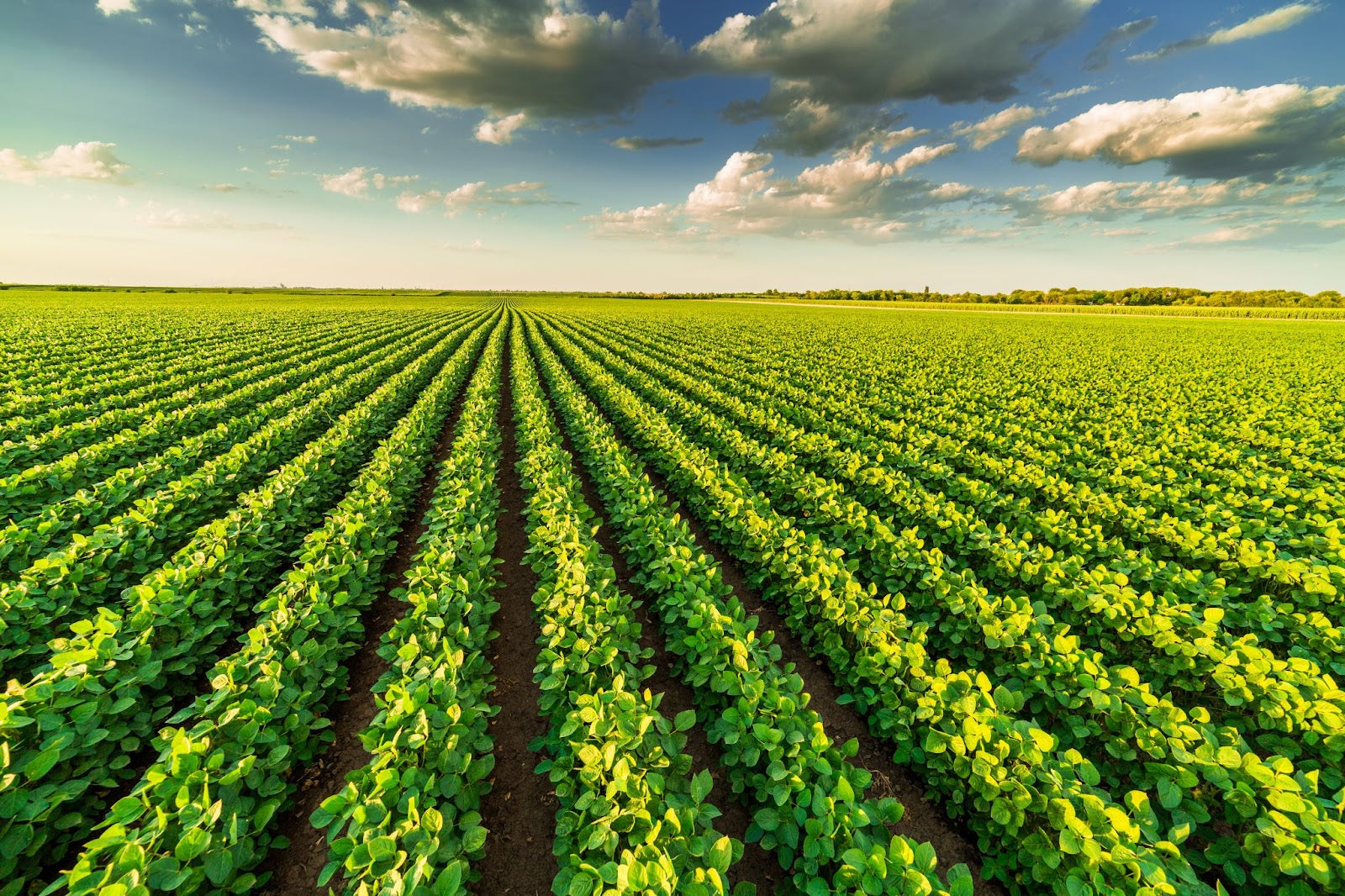
The idea behind GMOs was to produce higher yields of crops and a more aesthetic consistency. And while we’ve all chosen the prettiest-looking tomato over the one that looks deformed, the original idea behind GMOs hasn’t really gone as planned.
Choosing organic or non-GMO over GMO foods is the safest, healthiest, and most environmentally friendly option. That’s why we only use certified non-GMO ingredients in all of our recipes. Here are a few of the ways that consuming non-GMO foods can be beneficial for you, the critters, and the planet:
Better for your body
Non-GMO crops are free of harsh chemical fertilizers and toxic pesticides, meaning you’ll avoid ingesting them when you’re consuming your favorite foods. There’s nothing like biting into a fresh, juicy apple. However, GMO foods are not always as fresh as they look since they often use chemical preservatives to keep them looking that way. When you choose the organic or non-GMO option, what you see is what you get. The fresher the ingredients, the more nutrient-rich they are. So choosing non-GMO means your body is getting peak nutritional value.
Better for the environment
Non-GMO farming helps keep the soil fertile and reduces soil erosion. It also inhibits the development of superweeds and superbugs, which are resistant to traditional, mild herbicides and pesticides. Without the need for toxic chemicals to control these pests, less harmful chemicals leach into the soil. This maintains a healthy biodiversity among crops and animals and ensures that no substances make their way into the water table.
From one, we trust Michael Greger, MD FACLM
“Genes from GMO crops were found in pregnant women. There is debate on the direct threat of the inserted genes, but the real danger may come from pesticides associated with genetically modified foods. As stated in an article published in Science and Engineering Ethics, “genetically engineered seed biotechnology typically has not been used to increase crop yields, nutrition, or drought tolerance but instead for profitable pesticide-resistant products… 80% of GMO crops are bioengineered only for pesticide resistance. Not surprising, given that the top five biotech companies are chemical companies that manufacture pesticides.”
“There was a significant amount of glyphosate found in the GMO beans, along with a glyphosate breakdown product called AMPA. No glyphosate or AMPA was found in organic soy. What about conventional non-GMO soy, where glyphosate is just sprayed on the soil to kill weeds between crop cycles? Also, none. So, GMO soybeans are really not equivalent; they appear to have substantially more pesticide residues.”
What most folks don’t know about GMOs as animal feed
75% of all GMO-grown soybeans and 50% of GMO-grown corn grown in the US are for animal feed and are being fed to cows, pigs, and chickens. As humans slaughter over 100,000 animals every minute of every day, we are unaware of the amount of glyphosate being consumed second-hand by humans. That’s why we always recommend either certified no-GMO or organic foods rather than anything from animals. The presence of glyphosate in animal products is a concern for consumers interested in minimizing chemical residues in their food. This has led to an increased interest in organic or non-GMO options, where glyphosate use is eliminated
The Top 10 Non-GMO plant-based proteins
Adults should aim to consume about 0.36 grams of protein per pound of body weight per day. You can easily meet your recommended protein intake without needing to consume any GMO protein sources.
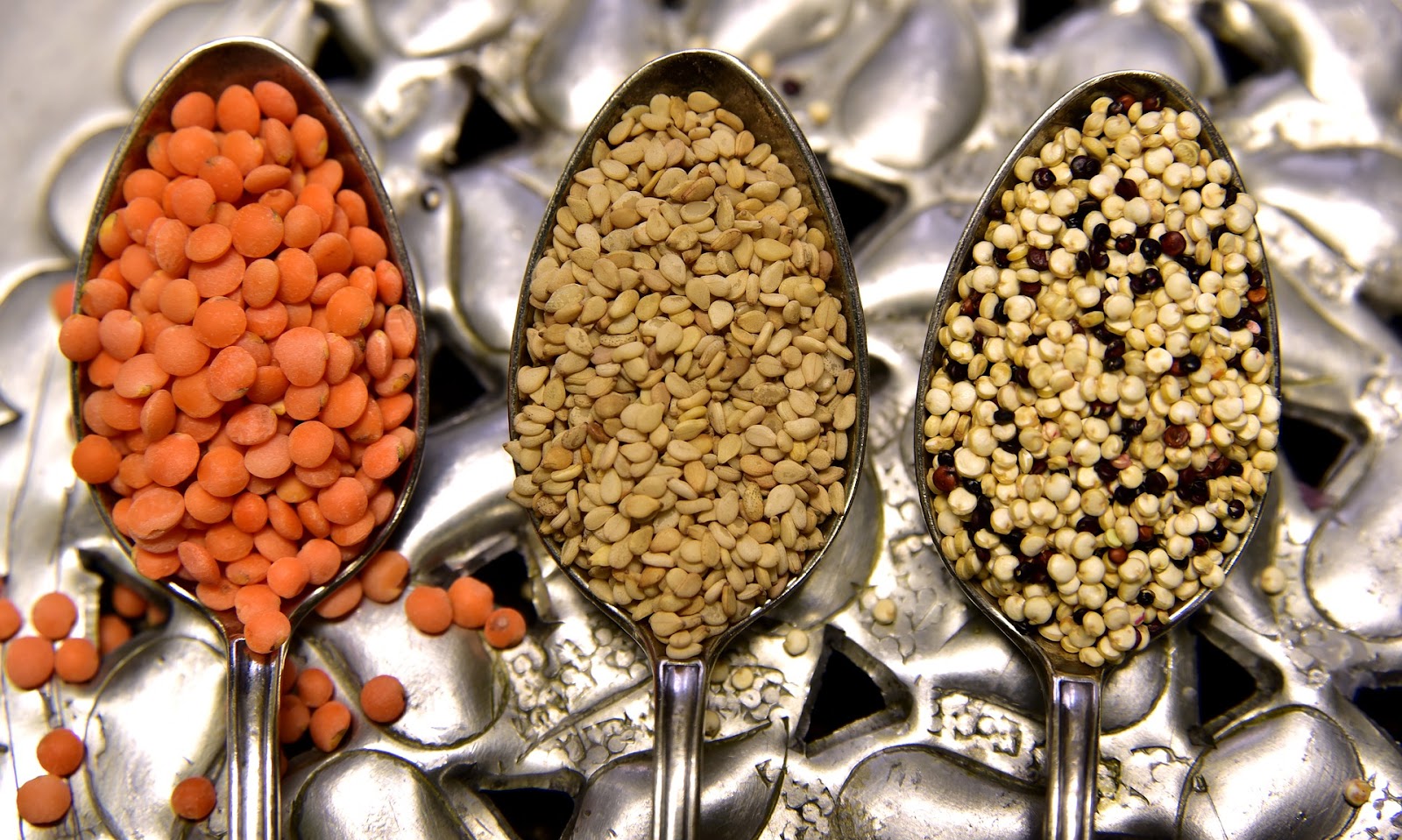
Here are the top ten non-GMO plant-based proteins to help your hit your daily protein count:
1. Non-GMO Soy
Soy is extremely protein-rich and is, like all other plants, a complete protein (meaning it contains all nine essential amino acids). Soy is found in hundreds of different food products and can often be GMO. But it’s not impossible to find products using certified non-GMO soy, such as all of ours! Non-GMO soy is found in tofu, tempeh, soy meat, and cheese alternatives, as well as soy milk and edamame.
Find out why we use certified non-GMO soy in our plant-based snacks.
2. Lentils
Lentils are almost always non-GMO and also contain upwards of 18 grams of protein per cup! That’s around a third of your daily recommended intake in just one cup. They are also high in fiber, potassium, and iron. You can incorporate lentils into soups, curries, salads, or even use them to make a plant-based meatloaf.
3. Quinoa
Quinoa is another complete protein containing all the essential amino acids our bodies need. Quinoa is non-GMO and is a super versatile ingredient that you can add to soups, salads, stews, stuffed peppers, or make homemade burger patties.
4. Chia seeds
Chia seeds are low in calories but high in protein, with 17 grams of protein per 100 grams of seeds. Non-GMO chia seeds are also high in fiber, calcium, B vitamins, magnesium, and omega-3, which are often lacking in a plant-based diet.
5. Spirulina
Spirulina is blue-green algae that is packed with protein and vitamins. It’s typically sold in powdered form, which you can add into smoothies, juice, or even mix into water. It’s considered a superfood because it is so nutrient-rich and one of the best sources of plant-based protein that’s so low in calories. Two tablespoons of spirulina equal to 8 grams of protein.
6. Nuts
All nuts are non-GMO, so feel free to munch away on these healthy, protein-rich snacks. You can eat them straight up, blend them into butter, or add them to your favorite baked goods. The nuts that are highest in protein include almonds, walnuts, cashews, and peanuts.
7. Oats
Oats contain around 12 grams of protein per cup and are an inexpensive and filling way to add some extra protein to your diet. Oats are non-GMO and can be used to make everything from cookies to veggie burgers. You can enjoy them for breakfast with a topping of some berries or add some nut butter for a double dose of protein.
8. Chickpeas
Chickpeas are the main ingredient for one of our favorite snacks, hummus, but you can also enjoy them in salads, soups, or curries. Chickpeas have tons of protein, iron, fiber, potassium, and more!
9. Other beans
Most beans are non-GMO and also very rich in protein. Most varieties of beans have somewhere between 29-36% of your daily protein in one cup. The beans that contain the most protein include white beans, white beans, split peas, pinto beans, and kidney beans.
10. Nutritional yeast
Nutritional yeast is cheesy-tasting yellow flakes that are made with a form of deactivated yeast. They are the secret behind most vegan cheeses, and you can add nutritional yeast to just about any recipe for a whopping dose of about 8 grams of protein per two tablespoons of nutritional yeast. You can get non-GMO nutritional yeast at most health food stores and add it to your popcorn, pasta, potatoes, or kale chips.
Why we use Non-GMO ingredients
At All Y’alls Foods, all of our products, from our vegan jerky to our lant-based bacony bits, are certified GMO-free! These plant-based snacks are guilt-free, so you can keep munching and know what you’re eating is healthy, safe, and good for the environment, too.
